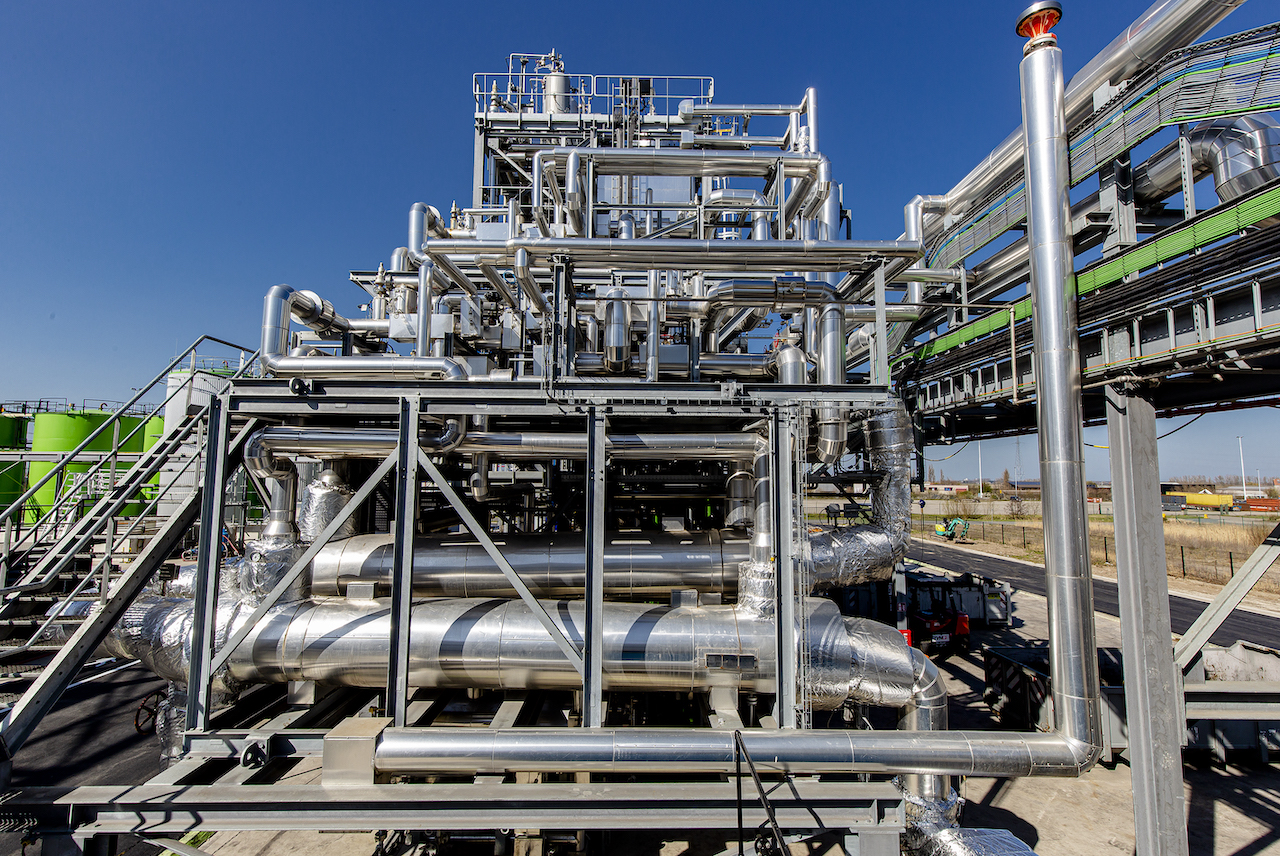Plastic products bring important benefits to society – they help improve living standards and deliver health, safety and sustainability benefits. Plastic waste, however, is a global issue and where waste is not managed appropriately, it ends up polluting the environment. Estimates suggest that of the 353 million tonnes of plastic waste generated globally, only 9% is recycled, and the remainder goes to landfill or incineration – or is unmanaged after use.
Shell, alongside many others, is committed to finding lasting solutions to plastic waste. We want to play our part in the transformation of the plastics value chain from linear to circular, reducing the need for raw materials and introducing more recycled products into everyday life.
Chemical recycling: key to tackling plastic waste
In recent decades, plastic recycling has mostly been limited to plastic waste streams which are relatively easy to collect and mechanically recycle like drink bottles or milk containers. However, alternative techniques are needed for plastics that cannot be mechanically recycled and are currently incinerated or go to landfill. These are hard to recycle plastics like snack bags, plastic film, garden furniture and others.
Chemical or advanced recycling uses different technologies to expand the types of plastics that can be recycled. Shell is working on several technologies to utilise waste and is focusing particularly on chemical recycling through pyrolysis: a special heating process that turns hard-to-recycle plastics into a liquid. This liquid, referred to as pyrolysis oil, replaces virgin hydrocarbons in the production of chemicals which are the building blocks of a wide range of products we use every day, including new plastic products.
A complementary solution to mechanical recycling, chemical recycling can help improve recycling rates and introduce products with more recycled content to the market. We are looking at this through a global lens: if plastic waste can become a valuable resource also in other parts of the world, incentives for its collection and management will be stronger than ever before.
Building a circular value chain
To grow the market for pyrolysis oil to required industrial quantities, Shell is working with partners at different stages of the value chain and across various industries, including the waste management industry and small and medium enterprise pyrolysis oil producers.
In 2021, Shell invested in BlueAlp and together we are working to develop, scale and deploy BlueAlp’s plastic waste to chemicals technology. Already at a commercial scale, Shell’s experience and size will help further improve and expand the technology’s capacity to recycle larger volumes of plastic waste. BlueAlp’s technology will be licensed globally to support the growth of pyrolysis oil production.
In the Netherlands, Shell and BlueAlp will build two plastic waste conversion units with the combined capacity to process approximately 30,000 tonnes a year of tough-to-recycle plastic waste. The units are expected to be operational in 2025 (pending a final investment decision) and Shell will use the pyrolysis oil produced at its Chemicals Park in Moerdijk.
We have also developed a technology to tackle the industry-wide challenge of inconsistent purity of pyrolysis oil, which still impedes the growth of the market. Shell’s proprietary upgrader technology improves the quality of pyrolysis oil that can be fed to a cracker and will allow the use of pyrolysis oil with a wider range of characteristics. We are currently investing in two pyrolysis upgrading units with one each in Moerdijk and Singapore.
Collaboration is key to enabling the circular value chain. In addition to our investment in BlueAlp, we are establishing long term relationships with pyrolysis oil producers and guaranteeing offtake agreements for Shell’s crackers in Europe, Asia and the United States. We are also building strategic alliances with waste management and recycling companies to unlock currently inaccessible waste streams and help drive industry growth.

Enabling policy frameworks
A supportive policy environment can help unlock innovation and investment but also gives rise to some uncertainty that could hold back growth. In our case, the EU is a driving force with its Circular Economy Action Plan and Strategy for Plastics in a Circular Economy and related legislation on waste collection and recycling as well as on sustainable carbon cycles. This creates a lot of potential for innovation like ours, but also the risk of bias towards an overly narrow set of solutions for political reasons. For example, uncertainty will prevail as long as it is not clear that the new rules will provide a level playing field between chemical and mechanical recycling. Similarly, if the opportunity to secure steady flows within the Single Market for both our input materials (i.e. waste) and our output material (pyrolysis oil), is missed.
Policy frameworks are important innovation enablers, provided they embrace innovation and consider the full value chain, from access to resources (in our case waste) to encouraging uptake by end users. This is especially true for innovations in the circular economy.

